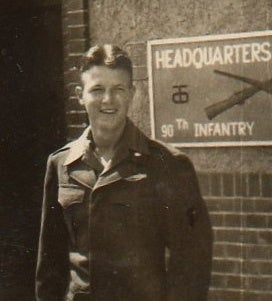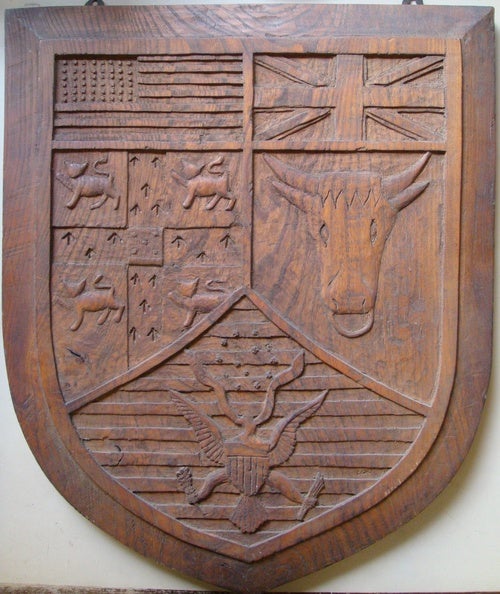A Short History of the C.D. Broad Junior & the Peden Senior Fellowship Exchanges
(Quotations from other histories by kind permission of their authors)
The C.D. Broad Junior Exchange program between Trinity College, Cambridge, England, and Rice University, Houston, Texas started in 1962, and the Peden Senior Fellowship Exchange followed in 1963, although neither exchange was known by these names at these times. Although names have changed, the primary objective of the exchange continues to be to promote international understanding.
Frank T. Abraham and Professor C.D. Broad were the prime movers in getting these programs started. They had met when Frank attended Cambridge at the end of the 2nd World War under the auspices of a US army program that had its origins in the previous World War. After the 1918 Armistice, the forces had offered both officers and enlisted men the chance to attend short courses at European universities, ”to improve their morale and prepare them for reintegration into civilian life". This had been judged such a success that it was decided to repeat it at the end of the war in Europe. Since there were also too many GIs to transport back to the US, or onward to the Pacific, immediately after the war in Europe ended, this program also helped to alleviate the pressure on that transportation.

A Twining Within Civilian Agencies (TWCA) program was established to handle the placement of US personnel in educational establishments across the UK and a Major George Dewey Blank was placed in charge of the program's Cambridge Area on 4 October 1945. Within two weeks, 149 officers and men arrived to follow a course of study closely resembling the first term of a Cambridge honors degree. There was room for just 60 of the GIs throughout the Colleges, so the remaining 89, as per orders, were "rationed and quartered at the Bull Hotel, under the supervision of the American Red Cross."
The transformation of the hotel from a military hostel into an academic house came about through the influence of John T Sheppard, the eccentric Provost of King's. In his welcoming address to all the Americans, he said, "As the word ’hotel' sounds so very undignified, I just call you simply’ Bull College'. And you, Major Blank, I refer to as the Big Bull."
However playful Dr. Sheppard had meant to be, he was taken at his word. The Cambridge Bull, the GIs' self-produced magazine, picks up the story: "His suggestion was enthusiastically adopted, and he has since been known as the foster-father of Bull College. At the first meeting of the students, Major George D Blank, commanding officer of the Cambridge Area, was unanimously elected Master of the College."
From this time, Bull College seems to have enjoyed at least semiofficial status. In the American students’ academic records, now held in the University Archives, Bull College is stated as the college affiliation on some individuals' documentation just as Magdalene, Downing or Trinity appears on others'. Furthermore, as The Cambridge Bull makes clear, even those TWCA students at the regular colleges were considered to be a part of Bull, in a sort of dual nationality.
Within weeks, the new foundation had not only a principal, but its own colors, tie and a coat-of-arms created by ’official artist’ AI Kohler. His design is a succinct statement of Bull College's origins: the shield's five divisions juxtapose the Stars and Stripes, the Union Flag, the University arms, a bull's head and the American eagle. This became a widely recognized symbol of the college, reproduced on correspondence and dinner invitations, decals and blazer patches. It was also carved into a two-foot oak escutcheon - lately rediscovered in a comer of St Catharine’s College library - that was considered the college totem.

Frank Abraham was a Master Sergeant with the 99th Infantry Division and one of the GIs to take advantage of this program. His tutor at Cambridge suggested that he attend lectures by professors such as C.D. Broad and Bertrand Russell. Professor Broad routinely invited students from his classes to have afternoon tea in his rooms at Trinity - the same rooms once occupied by Sir Isaac Newton, so Frank and the others gained, as he put it afterwards, an unforgettable perspective of British teaching and learning that would change his life.
After completing his short study period at Cambridge, Frank returned to the United States and to his studies at the University of Texas. After earning his law degree there, he returned to England to study for a year at Oxford University, under an Institute of International Education scholarship. On his return to Houston, he became one of the founding partners of the law firm, Hill, Brown, Kronzer and Abraham, which continues today as Abraham, Watkins, Nichols, Sorrels, Agosto & Friend. Meanwhile he and Professor Broad stayed in contact, and when Frank learned that Professor Broad would be coming to the US on a lecture tour in 1954, he invited him to visit Houston and to stay with his family. While in Houston, Professor Broad renewed his friendship with J. Frank Dobie at the University of Texas, who had lectured at Cambridge before the war, and conferred with Professor Tsanoff at Rice Institute, as it then was.
In the same way that Frank had, Professor Broad saw some similarities between Rice and Trinity and liked the low student to professor ratio and the high quality of both. Between Frank and Professor Broad, the idea of an exchange between the two developed. In late 1960 along with some money that Professor Broad had left with Frank from his lecture tour, Frank and several of the other lawyers in his law firm contributed to a fund to attempt to interest Trinity and Rice in a formal exchange of students. In 1962 this exchange program started - as the Trinity Record stated, ”A new alliance has been formed with Rice University, Texas. For a trial period of three years, one man from Trinity will study at Rice, and one from Rice at Trinity. This is being made possible by the energy and initiative of Mr. Frank Abraham, of Houston, Texas, and formerly of "Bull College", Cambridge.”
One student from Rice went to Trinity and one student from Trinity came to Rice. The following year a senior exchange for professors was also started. While the student exchange was for a year, the senior exchange was only for a few weeks and the original idea behind the senior exchange was that the professors would be able to provide support for the junior exchange students at their respective universities. Evidently the trial was a success and both exchanges continued for several years until funding became tight and they were suspended after 1969. Professor Broad died in 1970 and by 1977 a major fund-raising effort was made to start the program again and rename it as the C.D. Broad Exchange Program in memory of Professor Broad’s contribution to its founding and to his hospitality to the American students at ”Bull College." The effort was a success and the program started again that year, but with the junior students alternating, a student going from Rice to Trinity one year and then a student coming from Trinity to Rice the following year. In the ensuing years additional funds have been received from former exchange students and from Frank and his friends and the program has been able to continue uninterrupted to this day. In 2003 a new agreement involving increased participation by the Foundation, Trinity and Rice was reached so that junior students could once again go each way each year. However, the senior exchange, now renamed the Phil Peden Senior Exchange in honor of the late Judge Phil Peden who was a very respected Houston judge, a member of the Board of the Student Aid Foundation and active member of the Rice Alumni Association, continues on the alternate year basis, and has established itself in its own right as an opportunity for professors to meet their counterparts, discuss their research and get first-hand experience with the other university.
As for Bull College, the Bull Hotel (under requisition from its owner, St Catharine’s College) was reclaimed by the British military at the end of 1945 for Russian language courses. Bull College was forced out to a complex of hutments formerly occupied by the War Ministry. The end of Bull College came at the beginning of March 1946, with the announcement that the army educational programs were to be cancelled. The requisition order itself lapsed in September 1946 and St Catharine’s took possession of them to house the influx of undergraduates demobbed from UK forces. Recognizing St Catharine’s as Bull College’s geographical heir, John Sheppard offered to its archives two mementos that the departing GIs had left in his care: the carved oak shield and a framed resolution signed by every member of the class of 1945. Its text concludes with the wish that “the appropriate agency of the United Nations Organization be urged, through this resolution, to bring about in the future a great increase in the number of students to be exchanged among the several United Nations.”
In recognition of all his work to make the exchange a success, Frank Abraham has been honored by both Trinity and Rice. He died in 2004, but the program continues, and by 2017 it will be 55 years old. To date 62 students and over forty professors have enjoyed its benefits, with many of the students stating afterwards that it was a life-changing experience. It truly satisfies the objective of promoting understanding between nations.
G.L.Buchanan
Houston, Texas, September 2015
